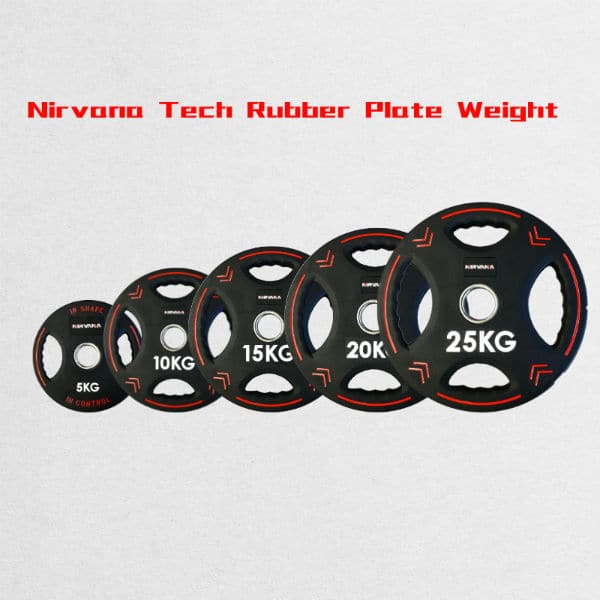Standard weights are usually found in home gyms. The primary difference is the bar diameter. Both Olympic and Standard bars are about 1" thick in the central section, but the bar diameter differs on the covers where you slip weights on, so you can't combine and match between them.
Olympic bars are 2" diameter on the edges. As such, they will only take the Olympic weight plate, which has 2" diameter holes.

Standard bars are 1" in width on the ends, ie: the entire bar is about 1" diameter. They are built to take Standard weight plates with 1" holes. They will also take Olympic weight plates, but Olympic plates will fit loosely as their holes are larger, so in such a case it's recommended you purchase Olympic Adapter Sleeves so that the Olympic weights fit snugly on the Standard bar.
Olympic Weights Advantages:
Strength - Standard bars will start giving somewhere over 200 lbs, whereas Olympic bars can take certain hundred pounds safely. Even stronger Olympic bars are estimated at 1000 or 1500 lbs.
Stability - Olympic bars are heavier and denser on the ends and are much more challenging to tip over due to unstable weight when loading 45 lb rubber weight plates.
No torque - Olympic bars have rolling ends so that there is no added torque while practicing certain exercises such as snatches or curls. This decreases the chance of your hands shifting.
Rack adaptability. Power racks and Olympic width bench racks are built to take 7ft bars. Standard bars are usually only 5 ft long.
Width - The middle part of the bar is actually lightly thicker on Olympic bars, normally 1 1/16" or 1 1/8". A standard bar is typically 1". A thicker bar is easier to grip, and even that small difference is enough to create a variation in how much you can lift.
Competition grade - Olympic bars are the only kind used in competitions.
Deadlift support - Olympic 45 lb weights are bigger in diameter than Standard 50 lb weights, thereby lifting the bar off the floor more to make deadlifts more comfortable.
Options. Grip plates have built-in grips that make the plates much more comfortable to carry safely. Rubber weights plates combat breakage, noise, and rust. Olympic plates have the best type of these options.
Standard Weights Advantages:
Price - Standard bars are more economically made and are lighter. The weight plates themselves often cost about the equivalent for basic cast-iron models.
Dumbbell Handles - Most Standard dumbbell handles (14in) are smaller than Olympic (18in), and many people favor shorter ones for dumbbell workouts.
Spin-Lock Collars - Also termed star lock collars. Some Standard bars come with threaded sleeves to support spin-lock collars to secure the weights, rather than the conventional collars that slide on and lock in position by confining. Spinlock collars may not even be an asset, as they take a while to spin on and off, but some people like them, so it's worth considering. Note that whether spin-lock or not, all Standard bars practice the related Standard plates.
We suggest proceeding to Olympic unless you have a valid reason not to. All gyms, pro athletes, powerlifters, and bodybuilders practice with Olympic weights, as well as a large number of casual home gym practicers who have got to learn the above grounds for choosing them. Get them at nirvanatech.com.au




Comments